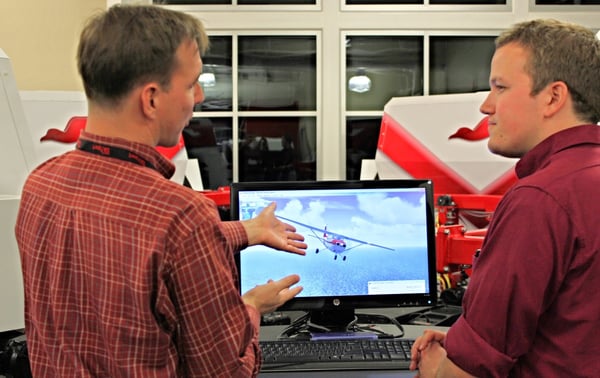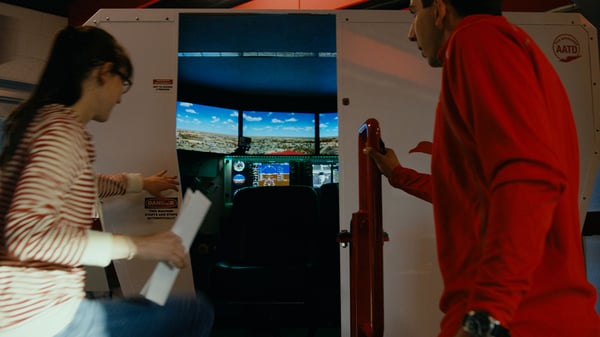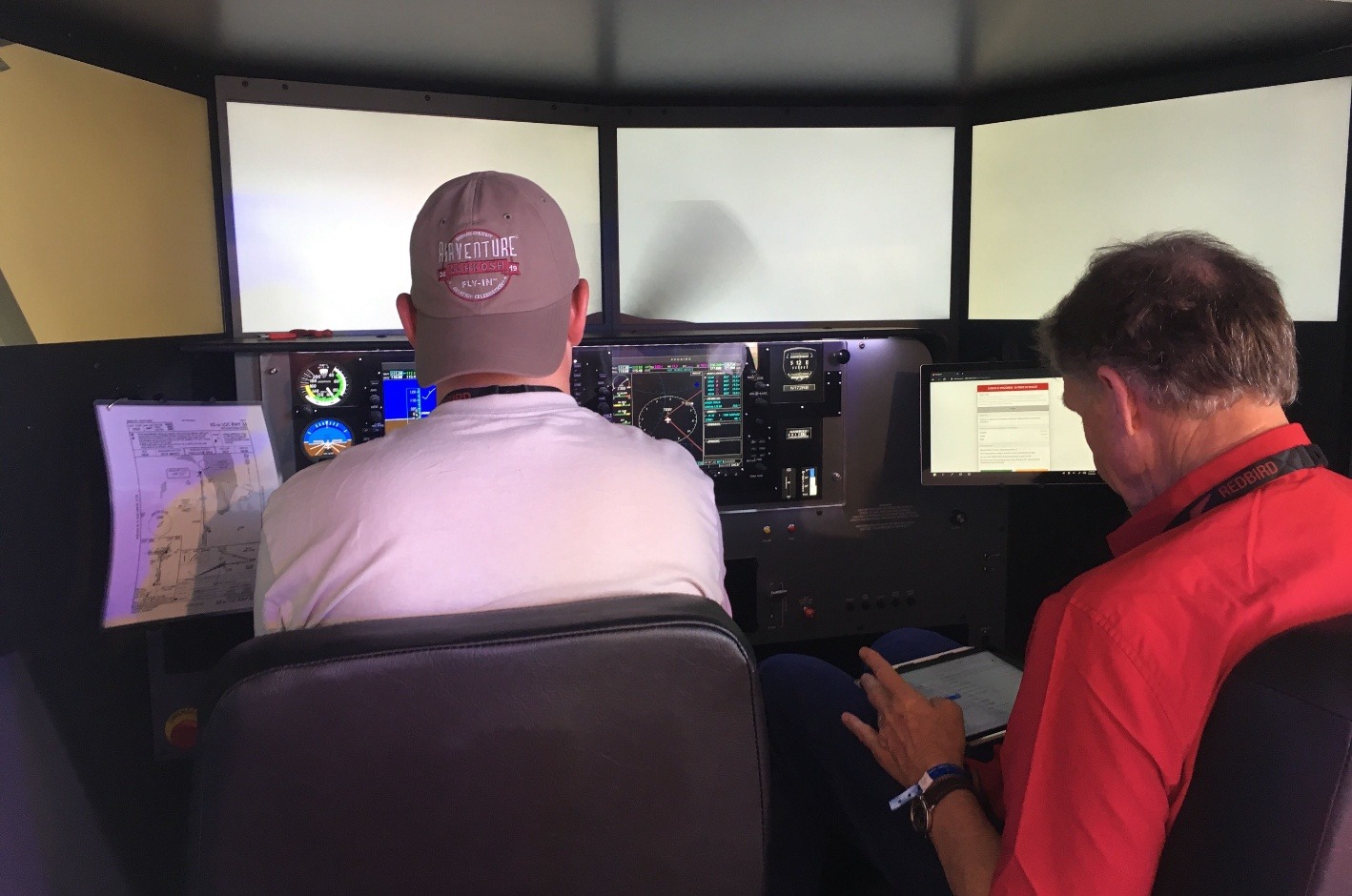How To Choose a Flight Instructor
Flight training is unique from other types of skills or occupational training in that you spend much of your time one-on-one with an instructor. Throughout your private pilot training, you will spend many hours flying in small aircraft with a Certified Flight Instructor (CFI) and additional time with the instructor on the ground before and after your flights. Whether you hire an independent CFI or go to a flight school, choosing an instructor you relate to, respect, and feel comfortable with both in and out of the airplane can be the difference between reaching your goals and stopping short.
An estimated eight out of 10 student pilots quit flight training before achieving their license. There are many reasons for the high dropout rate: procrastination, lack of funds, frustration with flight instructors or training programs, exhaustion due to the amount of work involved, fear of flying and/or failure, and even medical problems. The CFI you choose for your flight training should be able to help you navigate and overcome many of these obstacles.
Ultimately, your choice of flight instructor may be the difference between sticking to your training and giving up. Here are a few things to consider as you search for a CFI who can help you hit your goals.
Personal Fit
After a discovery flight, you may know that you want to take flying lessons. However, for any number of reasons, the flight instructor who took you on the flight may not be the best fit for you. Do not feel pressured to sign up for flying lessons on the day of your discovery flight or with the flight instructor with whom you were in the airplane.

You will spend many hours with your flight instructor throughout your training. The CFI you choose will be the one to show you and teach you how to handle an emergency. When you are ready, your flight instructor will also be the one who signs you off to fly solo and to take your checkride with a Designated Pilot Examiner.
Accordingly, you should plan to speak with several flight instructors to ensure you are comfortable with your choice. Prepare a list of questions you want each candidate to answer. Remember, even if an instructor is a Master CFI with years of experience, you are the customer. Do not feel impolite or embarrassed to ask questions about an instructor’s experience and success with student pilots.
Standard questions you should ask a flight instructor
- How long have you been flying, and what types of aircraft have you flown?
- How long have you been instructing?
- Do you have experience flying commercially (airline transport pilot, military pilot, charter pilot, skydive pilot, etc.)?
- What is your availability to instruct? Are there any days and times you are generally not available?
- Do you have a preferred ground school (either in-person or online)?
- Do you help students prepare for their knowledge test and review areas for improvement?
- Do you train students for their instrument rating, commercial pilot certificate, multi-engine rating, or flight instructor certificate?
- Do you use lesson plans?
- What flight training tools do you implement into training? Do you use advanced flight simulators or any aviation apps?
- How much time do you typically spend flying during a lesson?
- Where do you typically take pilots for cross-country flights?
- Do you have any plans to stop instructing soon to take another position?
- Can I speak with any of your current or former students?
These are just a few questions you should consider asking. If you plan to train with an independent CFI, you should ask about the instructor’s business and operations as well—including aircraft availability, training syllabi, and more.
Related Content: Checklist: Choosing the Best Flight School
Although it may be tempting to email a list of questions to a potential flight instructor, these questions are best saved for an in-person meeting. Many flight instructors are not interested in delivering a sales pitch and will not bother to write a lengthy response. You should make your decision based on your overall comfort level after meeting a potential instructor rather than how they respond to a list of questions over email.
You should enjoy training with your flight instructor
The Federal Aviation Administration (FAA) lists five responsibilities of all aviation instructors in the Aviation Instructor's Handbook (FAA-H-8083-9):
- Helping learners learn
- Providing adequate instruction
- Demanding appropriate standards of performance
- Emphasizing the positive
- Ensuring aviation safety
To accomplish objectives one, two, and four, the agency suggests flight instructors create an enjoyable learning environment and make each lesson a pleasurable experience for student pilots. The FAA indicates that students are more motivated when they enjoy the experience of flight training.
In reality, not all instructors prioritize the “fun” aspect of flight instruction. The popular forum phrase “your mileage may vary” (YMMV) applies here.
As a student, having fun may or may not be important to you. Regardless, you should enjoy time with your CFI and not dread your training sessions. Flight training can be difficult, but a good CFI will motivate you to confront the challenges it presents and enjoy the process of learning.
Related Content: Redbird's Guide to Starting Your Flight Training
Availability
Instructor availability is an important consideration. If you and your instructor both have scheduling flexibility, you will be able to complete your training faster. Flying lessons are often rescheduled due to weather, aircraft availability, or to accommodate the checkride needs of other students. If your instructor is only available one or two days a week, a missed flying lesson can cause a significant lag in your training and require you to spend extra time knocking off the rust.

You should also consider if your flight instructor will be available for the duration of your private pilot training. Changing flight instructors in the middle of your flight training is always an option, and — in some cases — it is necessary. However, ideally, the changes should be on your terms.
A new flight instructor may want to spend time reviewing concepts you already learned or teach you new ways of flying maneuvers. This can mean added time and expense. If you know the instructor with whom you are thinking about training may leave for the airlines soon, then make sure you are comfortable with the CFI who would take you on as a client afterward.
Experience
Consider your goals with your flight training and your potential instructor’s ability to help you reach them. Whether your CFI has achieved your end goal may not be a deal-breaker, but it can be helpful. For example, if you know you want to enlist in the military, a flight instructor with military flying experience may be valuable. Beyond teaching you the basic skills of operating an aircraft, an instructor with real-world experience in a particular field may be able to mentor you and provide advice and guidance.
You may ask a potential CFI how many hours they have, and they may proudly tell you they have 'X' number of hours. But remember, hours and experience do not guarantee anything. There are good flight instructors with just a few hundred hours and bad flight instructors with thousands of hours.
The achievements of a CFI’s students are a more relevant indication of their competence. For instance, on average, how long does it take the instructor’s students to achieve their license or rating sought? How many of them pass their checkride on the first attempt? The instructor’s dedication and commitment to helping you learn — and ensuring your safety while doing so — are more important than the hours they have logged.
Share this
You May Also Like
These Related Articles

The 4 Keys to Finding the Best Flight School in the USA

How Can You Reduce Your Instrument Rating Costs?
